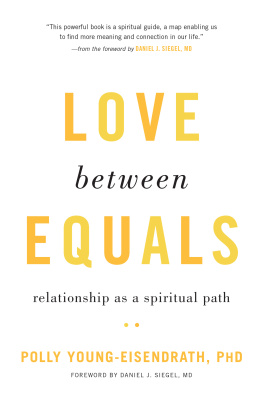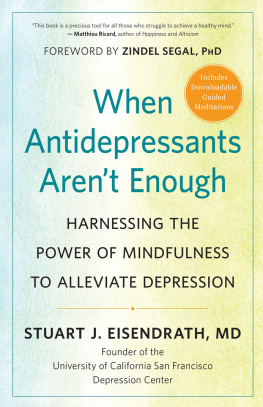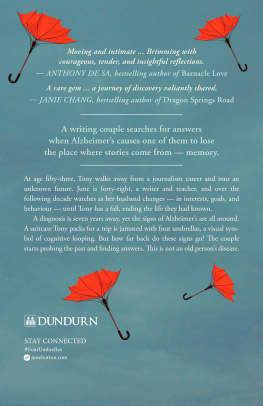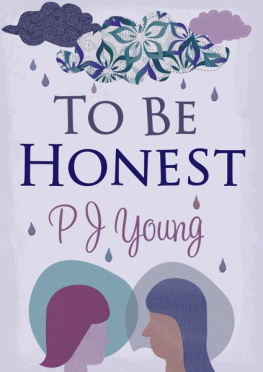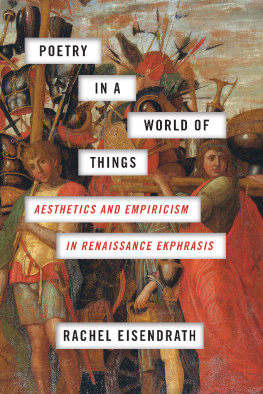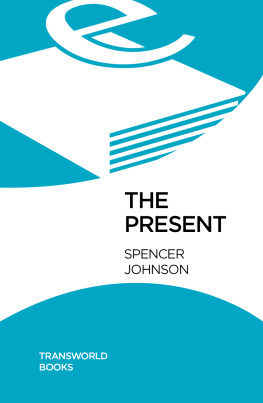ALSO BY POLLY YOUNG-EISENDRATH, P h D
The Self-Esteem Trap: Raising Confident and Compassionate Kids in an Age of Self-Importance
Women and Desire: Beyond Wanting to Be Wanted
The Resilient Spirit: Transforming Suffering into Insight and Renewal
Youre Not What I Expected: Love After the Romance Has Ended
The Cambridge Companion to Jung (coeditor)
Awakening and Insight: Zen Buddhism and Psychotherapy (coeditor)
The Psychology of Mature Spirituality: Integrity, Wisdom, Transcendence (coeditor)
Gender and Desire: Uncursing Pandora
Awakening to Zen: The Teachings of Roshi Philip Kapleau (coeditor)
Jungs Self Psychology: A Constructivist Perspective (coauthor)
Female Authority: Empowering Women through Psychotherapy (coauthor)
The Book of the Self: Person, Pretext, and Process (coeditor)
Hags and Heroes: A Feminist Approach to Jungian Psychotherapy with Couples
Mention of specific companies, organizations, or authorities in this book does not imply endorsement by the author or publisher, nor does mention of specific companies, organizations, or authorities imply that they endorse this book, its author, or the publisher.
Internet addresses and telephone numbers given in this book were accurate at the time it went to press.
2014 by Polly Young-Eisendrath
All rights reserved. No part of this publication may be reproduced or transmitted in any form or by any means, electronic or mechanical, including photocopying, recording, or any other information storage and retrieval system, without the written permission of the publisher.
Excerpt from Oddjob, A Bull Terrier from Selected Poems by Derek Walcott, edited by Edward Baugh. Copyright 2007 by Derek Walcott. Reprinted by permission of Farrar, Straus and Giroux, LLC.
Excerpt from Zen Flesh, Zen Bones
reprinted by permission of Tuttle Publishing.
Book design by Kara Plikaitis
Library of Congress Cataloging-in-Publication Data is on file with the publisher.
ISBN 978-1-60961-360-0
eISBN 978-1-60961-361-7

We inspire and enable people to improve their lives and the world around them.
rodalebooks.com
For Edward Epstein
LOVE ALWAYS
Contents
... and whether we bear it for beast,
for child, for woman, or friend,
it is the one love, it is the same,
and it is blest
deepest by loss
it is blest, it is blest.

from Oddjob, a Bull Terrier by Derek Walcott
Prologue
I n December 2009 I am flying to London from Johannesburg, South Africa, running a high fever. I am in a state of otherworldliness, confused and sick. Ive been away for 3 weeks, and the alluringly foreign sights and smells and settings of Johannesburg, Cape Town, Free State, and the Drakensberg Mountains have made me unfamiliar to myself. My return flight has also been delayed by 12 hours and my body is hot and achy while my mind races.
Several years before, I lost my husband, the love of my life, to a tragic illness. Now I am returning home after spending a lively visit with a man with whom I have been having a long-distance relationship. I wonder if I am in love again. Perhaps I have found the thread I am looking for. Im not sure. It was crazy to come all the way to South Africa seeking an intimate relationship. Something ineluctable is driving me. Ive come to find again the kind of love that allowed me to relax and know myself in exactly the same fresh and tactile way I know the natural world around me: the blade of grass, the suns heat, the smell of soil. Ed Epstein was my best friend and partner. Inside our love I learned how to be curious and compassionate with the puzzle that I am. We had developed the capacity to know each other just as we were and to accept each other without trying to change anything. We never lost the desire to be physically and emotionally close even though we bickered a lot. And we didnt just live together in family and home; we often worked together as couples therapists. Before knowing Ed, I did not know that such a love was possible, and now, after living with him for decades, I do not want to live without it. I wrestle with myself about the perils of seeking a new beloved. Frankly, though, losing Ed has sharpened my desire for love and life and my sense of their impermanence. Our love gave me the courage and confidence to live wholly and freely and now that love is gone. Gone also is the security of living within it.
Since 2001 or so, Ed Epstein has slowly, and at times almost imperceptibly, been subject to a relentless reversal of his mental and emotional maturity, the insidious unfolding of what I know, by 2009, is early onset Alzheimers disease. If you havent known such a disease in your own life, it is hard to imagine how stealthily it approaches its victims and their families. Ed was torn away from me inch by inch and in the most confusing ways. Although most people would imagine there might have been a vivid scene in which his impairment was clearly revealed, in fact the erasure of his ability was slow, confounding, and provocative.
An imagined classic scene of him wandering out on a winter day or leaving the flame on the stove lit after cooking never occurred. Ed never wandered and he didnt cook. A few times he would forget to put the lid on the gas tank after he pumped gas, but that was rare enough not to stand out. His impairment was more insidious: He would be unable to put things into sequence, to make decisions, or to take initiative, but he covered all this up with his extraordinary verbal skills and personal warmth. Even now, I dont know how much he knew of his own impairment before it was conclusively diagnosed when the disease was quite advanced. For some time he and our friends thought I had become just plain bossy, telling him what to do and how to do it. But I could feel something missing in Ed and I tried to compensate for it.
I recall a situation sometime in 2008 when he became incensed with me because I insisted I needed to make a tuna-salad sandwich for him. I can make it myself! he protested. Then he recited a clear verbal account from the first step (open the can of tuna) through the last step (spread the tuna salad on the bread slices). And so, I took out all the ingredients from the cupboards and set them in front of him. He could not begin. He could not see what came first, although he could say it. In his frustration, he broke down and cried. He could say the sequence, but he could not see the sequence in his minds eye and move his body accordingly.
By the time I am flying back from South Africa, Eds minds eye has been blind for quite some time. He is cognitively and emotionally a very young child. I cherish and support him in his new life in a residential care center. We are divorced. I know conclusively that Ed has advanced Alzheimers disease, diagnosed when he was 59 years old. I am also easily $70,000 in debt from credit cards he had taken out, then had forgotten to pay or lost. He had written another $57,000 in checks to himself from our joint account and spent some of that money on items I was never able to discover. We had no savings or investments for retirement and we had cashed out our life insurance policies to cover the immediate financial crisis.


